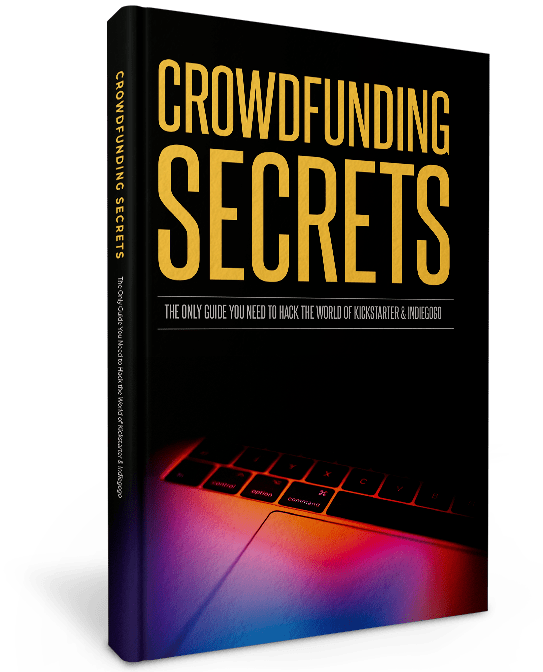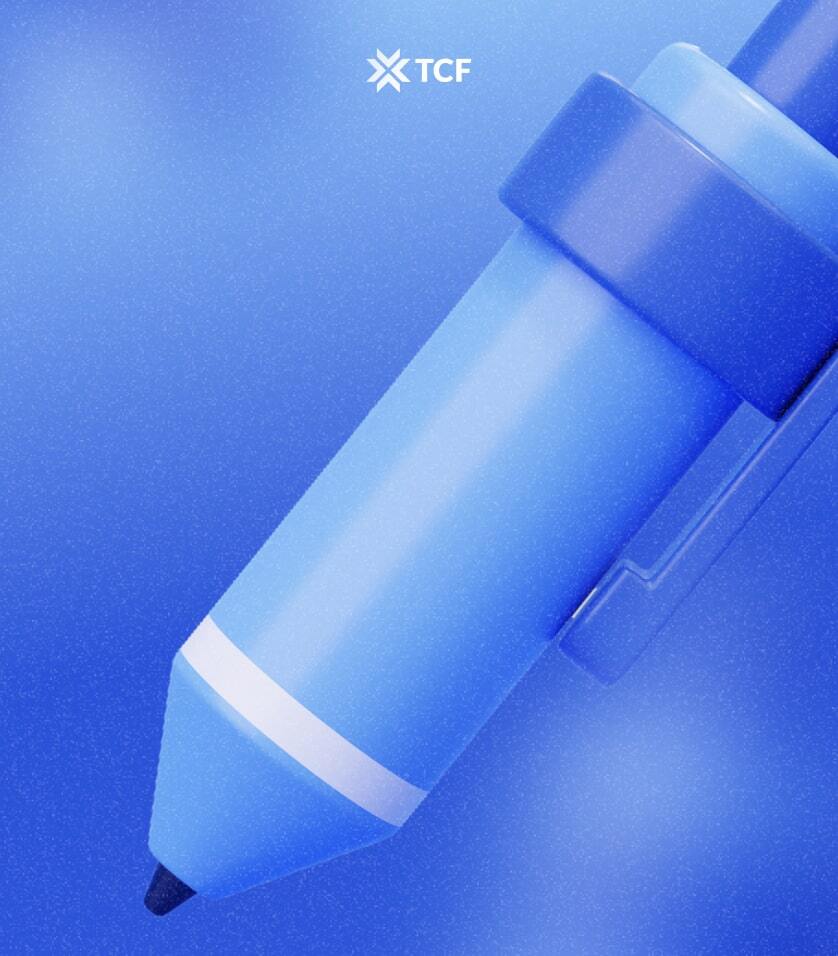Let’s face it: in today’s competitive ecommerce world, just having a great product on your virtual shelves isn’t enough. You’ve got to be front and center when people are actively looking for what you sell—and that’s exactly where PPC (Pay-Per-Click) advertising comes in. Think of it as a shortcut to connecting with ready-to-buy shoppers. Instead of waiting (and hoping) they stumble onto your site organically, PPC puts your brand right where the action is, boosting visibility and pushing more of the right traffic straight to your store.
But here’s the thing—running a successful PPC campaign isn’t as simple as picking a few keywords and watching the sales roll in. It takes research, precision, and constant optimization. To ensure this guide delivers industry-backed insights, we tapped into the expertise of Norayr, Advertising Team Lead at TCF, a leading ecommerce marketing agency known for driving impressive campaign growth. With real-world experience scaling ecommerce brands, Norayr shared actionable strategies, common mistakes, and proven techniques that go beyond surface-level tactics.
In this guide, you’ll learn everything from what ecommerce PPC management is, why it’s essential for your growth, when it’s smart to bring in experts like TCF for next-level results. We’ll break down the key elements of a winning strategy, highlight common mistakes to avoid, and explore when it’s time to call in the experts. If you’re ready to turn clicks into conversions, you’re in the right place.
Let’s get started.
What Is Ecommerce PPC Management?
Ecommerce PPC (Pay-Per-Click) management is the process of running paid ad campaigns to drive traffic and sales for online stores. Instead of waiting for organic traffic, PPC allows brands to position their products in front of buyers instantly on platforms like Google, Meta (Facebook & Instagram), and Microsoft (Bing).
Unlike organic strategies, PPC gives brands complete control over where, when, and how their products appear. But it’s not as simple as launching ads and hoping for clicks. Effective PPC management focuses on:
- Targeted Ad Placement: Ensuring ads appear to high-intent shoppers at the right time, on the right platforms.
- Audience Precision: Reaching specific shopper segments using behaviors, interests, and demographics.
- Continuous Optimization: Making ongoing adjustments to bids, targeting, and ad creatives to boost ROI.
Platforms like Google Ads, Meta Ads (Facebook & Instagram), and Microsoft (Bing) Ads play unique roles in a PPC strategy. Google captures intent-driven traffic, while Meta excels in discovery-driven shopping.
Done right, PPC can be one of the most cost-effective ways to grow an ecommerce brand. Done wrong, it’s a budget-burner. Insights from Norayr, TCF’s advertising team lead, reveal that the key to success is alignment—matching the ad message with the landing page and constantly optimizing based on performance.
Take Your Online Store to New Levels
Team up with our dedicated team of experts to:
- Expand your reach
- Increase your brand visibility
- Drive more conversions
- Boost revenue and more
Why PPC Is Essential for Ecommerce Success
Here’s why ecommerce brands can’t afford to skip PPC (Pay-Per-Click) advertising:
- Instant Visibility: PPC places your products at the top of search results as soon as you launch a campaign, capturing ready-to-buy customers instantly.
- Precise Targeting: Target specific keywords, demographics, and behaviors to reach high-intent shoppers searching for exactly what you sell.
- Controlled Budget & Spend: You set the budget and only pay for actual clicks. Start small, test what works, and scale up as needed.
- Data-Driven Insights: Get access to clear, trackable metrics like ROAS, CTR, and conversion rates, so you know exactly what’s working.
- Flexibility & Adaptability: Launch, pause, or adjust campaigns in real-time to match seasonal trends, new product launches, or changing consumer behavior.
- Scalability: Once you identify winning campaigns, you can increase ad spend to boost visibility and maximize profits.
- Faster ROI: SEO takes months; PPC works instantly, driving traffic and conversions from the moment your ads go live.
- Competitor Advantage: PPC puts you on equal footing with larger brands since ad placement depends on bidding and relevance—not brand size.
- Ad Customization: Tailor messaging for different audience segments, creating highly personalized shopping experiences that boost conversion rates.
- Fast Launch for Seasonal Campaigns: Quickly activate, adjust, or pause seasonal promotions to capture timely demand.
With benefits like these, it’s no wonder ecommerce brands rely on PPC to fuel growth. Done right, it’s one of the most cost-effective ways to increase traffic, boost conversions, and get a clear, measurable return on investment.
Key Elements of Effective Ecommerce PPC Management
To turn PPC campaigns into profit drivers, ecommerce brands need a strategic approach. Here are the key elements that make PPC campaigns effective and efficient:
1. Comprehensive Keyword Research
The foundation of any great PPC campaign is keyword research. It’s not just about finding popular search terms—it’s about targeting high-intent, purchase-driven keywords that are specific to your product. Effective research involves:
- Identifying “buyer intent” keywords (e.g., “buy running shoes” vs. “running shoe reviews”).
- Grouping keywords by themes, product categories, and intent to ensure more targeted ad placements.
- Using a mixed approach for keyword targeting, which combines broader, high-volume keywords with specific, niche terms to balance traffic and conversion potential.
- Refining your negative keyword list to avoid wasting ad spend on irrelevant clicks.
2. Precise Audience Targeting
PPC isn’t just about keywords—it’s about people. Audience targeting allows you to reach users based on demographics, interests, and online behaviors. Ecommerce brands can create segmented campaigns to target specific groups, such as:
- Shoppers who abandoned carts.
- Users searching for products in a specific category.
- Custom audiences based on website visitors or email lists.
- Expanding audiences as data reveals new opportunities, such as identifying high-performing customer segments or new potential audiences from lookalike models or retargeting insights.
3. Conversion-Focused Landing Pages
No matter how great your ad is, if your landing page is slow, confusing, or irrelevant, you’ll lose the sale. Your landing page should align with the ad’s promise and provide a clear path to purchase. Key elements of a high-converting landing page include:
- Fast load times (because no one waits for a slow page).
- Clear calls-to-action (CTA) like “Buy Now” or “Shop Collection.”
- Consistency between ad copy and page content (if the ad says “50% off,” show it on the page).
4. Bidding Strategy & Budget Management
How much should you bid? What should your daily budget be? Smart bidding is all about balancing cost and conversions. Here’s how successful brands approach it:
- Start with smaller budgets to test what works.
- Use automated bidding for large-scale campaigns and scalability.
- Switch to manual bidding if you want to control bids on a keyword level for ultra-competitive products.
- Factor in product price and potential conversion costs to ensure the campaign remains profitable.
- Leverage historical data to guide budget decisions when available, allowing for more informed planning and spending.
- Regularly adjust bids based on ad performance and competition.
- TCF’s approach emphasizes using automated bidding for scalability while leveraging manual bidding in niche cases for more control and precision.
5. Compelling Ad Copy & Creative
The goal of an ad is to grab attention, build curiosity, and drive action. To stand out in crowded feeds and search results, your copy should focus on:
- Clear, benefit-driven headlines (e.g., “50% Off Waterproof Backpacks”).
- Urgency triggers like “Limited Time Offer” or “Only 3 Left in Stock.”
- Eye-catching visuals for display and social ads.
6. Ongoing Optimization & A/B Testing
PPC success isn’t a “set it and forget it” situation. It’s a constant cycle of testing, learning, and improving. Some essential optimization tasks include:
- Running A/B tests on ad copy, images, and CTAs.
- Reviewing search term reports to find new keyword opportunities.
- Adjusting bids on top-performing keywords for higher visibility.
- Rotating ad creatives to avoid ad fatigue.
7. Performance Tracking & Analytics
How do you know if your campaign is working? By tracking the right metrics. The key performance indicators (KPIs) for ecommerce PPC include:
- Conversions (total number of purchases from the campaign).
- Revenue (total sales value, not just order count).
- ROAS (Return on Ad Spend)—the holy grail of PPC performance.
If these numbers are low, dig deeper into CTR (Click-Through Rate), CPC (Cost Per Click), CPM (Cost per Thousand Impressions), impression share, and search term reports to find potential areas for optimization.
- Auction insights are also critical for assessing how your ads are performing compared to competitors. This helps brands adjust bids, keywords, and targeting to improve visibility.
8. Negative Keyword Management
Not all clicks are good clicks. Negative keywords help you block irrelevant traffic so you don’t waste money on bad clicks. For example, if you sell “luxury handbags,” you don’t want to show up for “free handbags” or “cheap handbags.” Managing and updating your negative keyword list is a must to protect your ad spend.
9. Scalability & Growth Planning
Once a campaign is working, the next step is scaling it up. This can mean increasing budgets, expanding your keyword list, or targeting new markets. Scaling requires a combination of:
- Increasing daily budgets on profitable campaigns.
- Expanding to new ad platforms (like Bing, TikTok, or Pinterest).
- Using lookalike audiences for fresh customer acquisition.
10. Technical Setup & Tracking
Without tracking, you’re flying blind. Proper technical setup is non-negotiable for effective PPC management. This includes:
- Installing conversion tracking to see which clicks lead to purchases.
- Setting up Google Analytics to track user behavior on your site.
- Using UTM parameters to measure campaign performance across platforms.
By mastering these key elements, ecommerce brands can avoid costly mistakes and build campaigns that deliver profitable, repeatable results.
Why You Should Hire an Ecommerce PPC Management Agency
Managing PPC campaigns might sound simple—pick keywords, create ads, and watch sales roll in. But in reality, effective PPC management requires strategy, precision, and constant optimization. Here’s why hiring an ecommerce PPC agency is a smart move:
- Expert Strategy & Insights: Agencies like TCF bring proven tactics and industry knowledge, from keyword targeting to optimizing landing pages for better conversions.
- Access to Advanced Tools: Agencies use powerful tools like SEMrush and Google Ads Scripts for smarter keyword research, competitor tracking, and bid adjustments.
- Time-Saving Support: Running a business is hectic. Letting an agency handle your PPC means you focus on growth while they handle the heavy lifting.
- Faster, Smarter Results: Skip the “trial-and-error” phase. Agencies know what works, so you’ll see results faster. TCF’s Advertising Team Lead highlights how quick campaign adjustments can yield better returns.
- Data-Driven Optimization: No guesswork—agencies analyze ROAS, conversion rates, and CTR to make real-time decisions for maximum performance.
- Scaling Made Simple: Agencies know how to scale campaigns strategically, avoiding the costly mistakes of overbidding or scaling too fast.
- Reduced Wasted Spend: Avoid rookie mistakes like targeting too broad keywords. Agencies refine your strategy, ensuring every ad dollar works harder.
If you’re spending hours managing campaigns but not seeing results, burning through your ad budget, or struggling to track ROAS, it’s probably time to call in the pros. PPC agencies like TCF bring experience, strategy, and cutting-edge tools to the table, ensuring your ad dollars are spent on what actually works.
Conclusion
Ecommerce PPC management isn’t just about running ads—it’s about running them smart. From laser-focused keyword targeting to data-driven optimization, a well-managed PPC strategy can turn ad spend into consistent revenue. But getting it right requires more than just guesswork. It takes precision, ongoing adjustments, and a clear understanding of which levers to pull for better performance.
If you’re feeling the pressure to drive faster results, reduce wasted ad spend, or simply free up your time, working with a PPC management agency like TCF might be the move. With industry insights, expert strategy, and access to powerful tools, they turn PPC campaigns into growth machines.
Whether you handle it in-house or bring in the pros, the key takeaway is this: PPC isn’t optional for ecommerce success. It’s a direct path to more visibility, higher conversions, and better control of your marketing budget. Ready to turn clicks into conversions? Start by mastering the essentials—or letting the experts handle it for you.
PPC, next question!
Your e-commerce success is just a step away
FAQ
1. What does a PPC agency or specialist do?
A PPC agency or specialist handles strategy, setup, and optimization of Pay-Per-Click campaigns. Their key responsibilities include:
- Research: Identifying high-converting keywords and audience segments.
- Technical setup: Setting up tracking and analytics for accurate performance measurement.
- Campaign setup: Launching ad campaigns with optimized targeting, bidding, and creative elements.
- Data analysis: Monitoring performance to drive profitability.
- Reporting: Delivering clear insights on key KPIs like ROAS, CTR, and conversions.
- Ongoing optimization: Refining targeting, bids, and creatives for maximum efficiency. Working with an agency like TCF ensures expert-driven strategies that improve conversions and ROI.
By working with a specialist or agency like TCF, you get access to tried-and-true strategies that drive conversions and improve profitability.
2. What platforms are best for ecommerce PPC advertising?
The most effective platforms for ecommerce PPC advertising include:
- Google Ads: Best for capturing high-intent search traffic.
- Meta Ads (Facebook & Instagram): Ideal for discovery-driven shopping and retargeting past website visitors.
- Microsoft (Bing) Ads: A smaller but often less competitive platform with lower click costs.
- Amazon Ads: Crucial if you’re selling products on Amazon’s marketplace.
- Pinterest & TikTok Ads: Great for visual product discovery and trend-driven shoppers.
Most ecommerce brands prioritize Google Ads for intent-driven searches, while Meta Ads excel at retargeting and social discovery.
3. How long does it take to see results from a PPC campaign?
You can expect to see initial clicks, impressions, and early data within a few hours of launching a campaign. However, real results—like conversions and sales—typically become clear within 2 weeks. This time frame allows ad platforms to “learn” which audiences convert best and adjust accordingly.
“At TCF, the team’s approach is faster. With efficient optimizations, we start spotting performance trends within 3-4 days. If performance metrics like click-through rate (CTR) and ROAS (Return on Ad Spend) are off-track, we make adjustments quickly to avoid wasting ad spend. For well-optimized campaigns (like those with strong products and landing pages), conversions can happen on day one.”, shares Norayr.
4. Can PPC work for small ecommerce businesses?
Yes! PPC is one of the most accessible marketing strategies for small ecommerce brands. It allows you to compete with larger brands since ad placement depends on relevance and bidding—not brand size. Here’s why it works:
- Budget control: Start with small budgets, test strategies, and scale up on what’s working.
- Targeted reach: Show ads to high-intent shoppers actively searching for your product.
- Measurable ROI: Unlike traditional ads, you know exactly where your money is going.
With a focused strategy and proper testing, small ecommerce brands can generate strong returns from PPC—often faster than organic strategies like SEO.






Comments